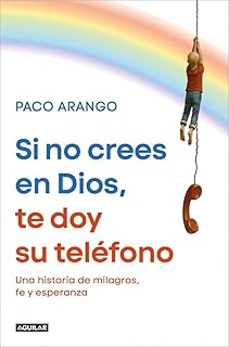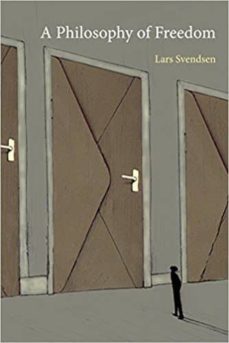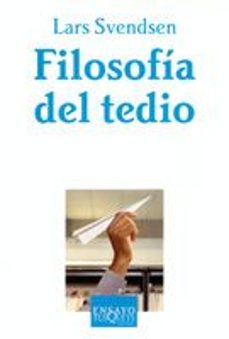Imprescindibles
Más vendidos Libros más leídos eBooks más leídos Todos los libros Todos los libros Autores destacados Series y sagas
Recomendados Libros recomendados Autores destacados Libros que inspiran Vidas con historia LGTBIQ+ English books
Ficción
Literatura Contemporánea Estudios literarios Clásicos Cuentos Poesía Teatro Libros de bolsillo Sagas literarias
Géneros literarios Novela romántica y erótica Novela negra Novela histórica Narrativa fantástica Novela de ciencia ficción Novela de terror Narrativa de humor Narrativa de viajes
No Ficción
Ciencias y tecnología Biología Ciencias Ciencias naturales Divulgación científica Informática Ingeniería Matemáticas Medicina Salud y dietas Formación Idiomas Estilo de vida Libros de Cocina Guías de viaje Narrativa de viajes Deportes Libros de Juegos Manualidades
Humanidades Autoayuda y espiritualidad Ciencias humanas Derecho Economía y Empresa Psicología y Pedagogía Filosofía Sociología Filología Biblioteconomía Estudios filológicos Estudios lingüísticos Estudios literarios Historia y crítica de la Literatura
Infantil
Juvenil
#Jóvenes lectores Narrativa juvenil Clásicos adaptados Libros Wattpad Libros Booktok Libros de influencers Libros de Youtubers Libros Spicy Juveniles Libros LGTBIQ+ Temas sociales Libros ciencia ficción Libros de acción y aventura Cómic y Manga Juvenil Cómic Juvenil Manga Shonen Manga Shojo Autores destacados Jennifer L. Armentrout Eloy Moreno Nerea Llanes Hannah Nicole Maehrer
Libros de fantasía Cozy Fantasy Dark academia Hadas y Fae Romantasy Royal Fantasy Urban Fantasy Vampiros y hombres lobo Otros Misterio y terror Cozy mistery Policiaca Spooky Terror Thriller y suspense Otros
Libros románticos y de amor Dark Romance Clean Romance Cowboy Romance Mafia y amor Romance dramatico Romcom Sport Romance Otros Clichés Enemies to Lovers Friends to Lovers Hermanastros Slow Burn Fake Dating Triángulo amoroso
Cómic y Manga
Novela gráfica Novela gráfica americana Novela gráfica europea Novela gráfica de otros países Personajes, series y sagas Series y sagas Star Wars Superhéroes Cómics DC Cómics Marvel Cómics otros superhéroes Cómics Valiant
Books in English
Books in English Fiction Non Fiction Comic Teen & Young Adult Main Authors Ken Follett Agatha Christie Stephen King Jane Austen Maggie O’Farrell On sale
Books in English for Young Adults Age 13+ Age 15+ Young Adult Authors Rebecca Yarros Sarah J. Maas Brandon Sanderson Ali Hazelwood Alice Oseman
Audiolibros
Literatura Contemporánea Narrativa fantástica Novela de ciencia ficción Novela de terror Novela histórica Novela negra Novela romántica y erótica Historia Historia universal
Humanidades Autoayuda y espiritualidad Ciencias humanas Economía y empresa Psicología y pedagogía Filosofía Infantil Audiolibros infantiles
Ciencia y tecnología Ciencias naturales Divulgación científica Medicina Salud y dietas Arte Cine Música Historia del arte
eBooks
Literatura Contemporánea Narrativa fantástica Novela de ciencia ficción Novela de terror Novela histórica Novela negra Novela romántica y erótica Juvenil Más de 13 años Más de 15 años Infantil eBooks infantiles
Humanidades Autoayuda y espiritualidad Ciencias humanas Economía y Empresa Psicología y Pedagogía Filosofía Historia Historia de España Historia Universal Arte Cine Música Historia del arte
Ciencia y tecnología Ciencias naturales Divulgación científica Medicina Salud y dietas Filología Estudios lingüísticos Estudios literarios Historia y crítica de la Literatura Estilo de vida Cocina Guías de viaje Ocio y deportes
Lars Svendsen
Recibe novedades de LARS SVENDSEN directamente en tu email
Filtros
Del 1 al 3 de 3
REAKTION BOOKS 9781780233703
A PHILOSOPHY OF FREEDOM
Ver más
Tapa dura
Tusquets Editores S.A. 9788483104941
¿Qué es, propiamente, el tedio? ¿De dónde surge esa sensación de vacío que a veces nos ataca sin contemplaciones? ¿Por qué es el aburrimiento un rasgo esencial de la sociedad contemporánea? Para el autor de este absorbente ensayo, el tedio es, sin duda, una de las grandes cuestiones filosoficas que tarde o temprano todos nos planteamos, y es tambien una experiencia humana que aclara muchas cosas sobre nuestra naturaleza. Hay un tedio situacional: las cosas y proyectos que tenemos entre manos, de repente nos aburren; pero hay un tedio mucho mas profundo y peligroso, porque tambien inmersos en un mar de actividades podemos sentir de repente que nada tiene sentido; mas aun, que no existe el sentido. En ese caso, uno se siente vacio de todo, incluso de si mismo.Para aclarar esta nocion, Svendsen hace un brillante recorrido a traves de las diversas manifestaciones y variantes historicas del tedio entre ellas, la melancolia o el taedium vitae del Romanticismo, sin olvidar lo que clasicos como Pascal, Schopenhauer, Nietzsche, Heidegger, Cioran, Beckett o Pessoa han aportado al asunto. El resultado es un analisis claro, preciso y estimulante acerca de un estado animico que trasciende lo personal y que nos habla sobre la incapacidad de nuestra cultura y nuestro tiempo para generar sentido.
Ver más
Tapa blanda
REAKTION BOOKS 9781861892171
It has been described as a "tame longing without any particular object" by Schopenhauer, "a bestial and indefinable affliction" by Dostoevsky, and "time's invasion of your world system" by Joseph Brodsky, but still very few of us today can explain precisely what boredom is. "A Philosophy of Boredom" investigates one of the central preoccupations of our age as it probes the nature of boredom, how it originated, how and why it afflicts us, and why we cannot seem to overcome it by any act of will. Lars Svendsen brings together observations from philosophy, literature, psychology, theology, and popular culture, examining boredom's pre-Romantic manifestations in medieval torpor, philosophical musings on boredom from Pascal to Nietzsche, and modern explorations into alienation and transgression by twentieth-century artists from Beckett to Warhol. A witty and entertaining account of our dullest moments and most maddening days, "A Philosophy of Boredom" will appeal to anyone curious to know what lies beneath the overwhelming inertia of inactivity.
Ver más
Tapa blanda
Del 1 al 3 de 3




























